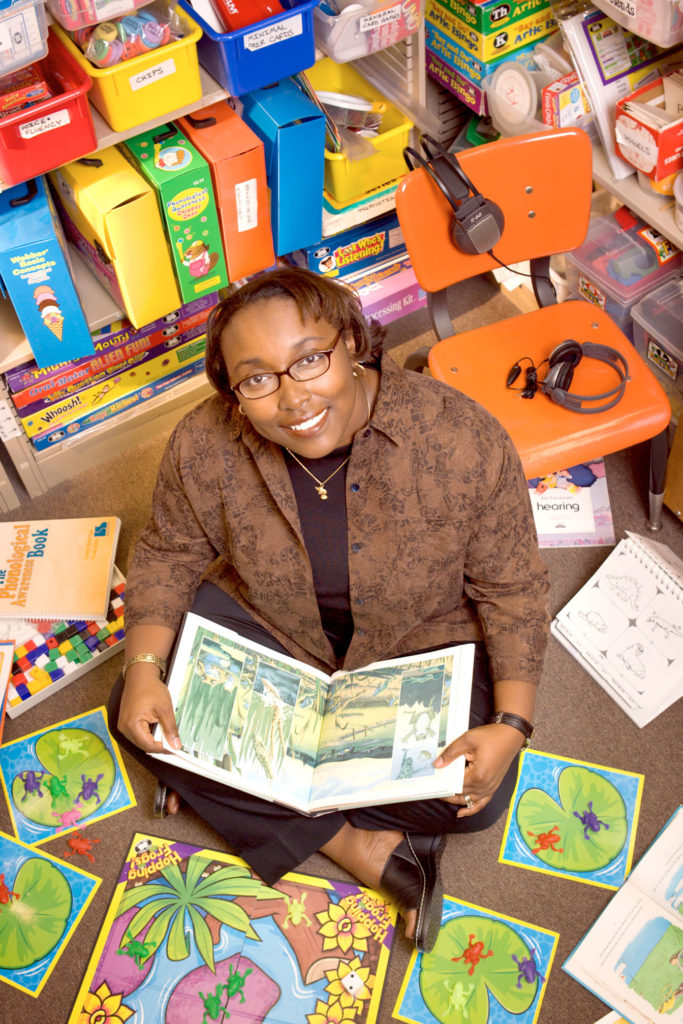Few professors on the UGA campus have the opportunity to impact children’s lives as much as Yolanda Keller-Bell. A faculty member in the College of Education’s department of communication sciences and special education, Keller-Bell says that despite living in a nation focused on the idea of “No Child Left Behind,” statistically, one child out of every 800 births has the potential to be left behind.
“Many forget that we have students with special needs who have to become literate in our society too,” says Keller-Bell, referring to children born with developmental disabilities. She has dedicated her academic and professional life to helping many of those children who too often are overlooked.
After receiving her master’s degree in speech pathology, Keller-Bell says her experience working at an Easter Seal Rehabilitation Center in Columbus, Ohio, helped her decide her research interests when she returned to pursue her doctorate.
“Having the chance to see kids clinically, going through therapy, who had a variety of different developmental disabilities was really interesting to me,” she says. “So when I decided to go back for my Ph.D., I knew I wanted to focus on children with special needs.”
Specifically, her research focuses on children with Down syndrome who have difficulty learning some aspect of language. Currently, she is examining intervention methods on preschoolers and adolescents.
“My research focuses on finding out what aspects of language they have trouble learning and then trying to figure out why they have difficulty learning those aspects,” she says.
Keller-Bell plans to eventually develop therapeutically sound treatments to help children battling Down syndrome improve their communication skills. Down syndrome is the most common genetic syndrome that causes mental retardation. In most cases, speech and language development is also affected.
Sharing her clinical experience enhances both her undergraduate class (language disorders in children and adults) and her graduate seminar class (multicultural issues in speech language pathology), according to Keller-Bell.
“Having clinical experience providing therapy services helps me when I’m teaching because I can tell students about my experiences when I was actually seeing clients, and I think it provides a connection between therapy and the research,” she says.
Most of Keller-Bell’s graduate students will work in speech pathology upon graduating. Several will probably work with children born with various disabilities. Her undergraduate students plan to become speech pathologists, audiologists or instruct the deaf. However, a master’s degree is required to practice speech language pathology. When choosing her career path, Keller-Bell knew she wanted to work with children and had an interest in the health sciences.
“My neighbor suggested that I shadow her friend who was a speech pathologist, because she thought it combined working with children and some of the medical and health aspects that held my interests,” she says.
Prior to joining the UGA faculty in 2003, Keller-Bell was a faculty lecturer at the University of Wisconsin at Madison and had a National Institutes of Health post-doctoral fellowship at the Waisman Center for Mental Retardation and Developmental Disabilities.
“When I interviewed at Georgia the education faculty impressed me,” she says. “They were very receptive, open and collaborated with each other. I really felt it would be a good fit for me professionally and personally.”
